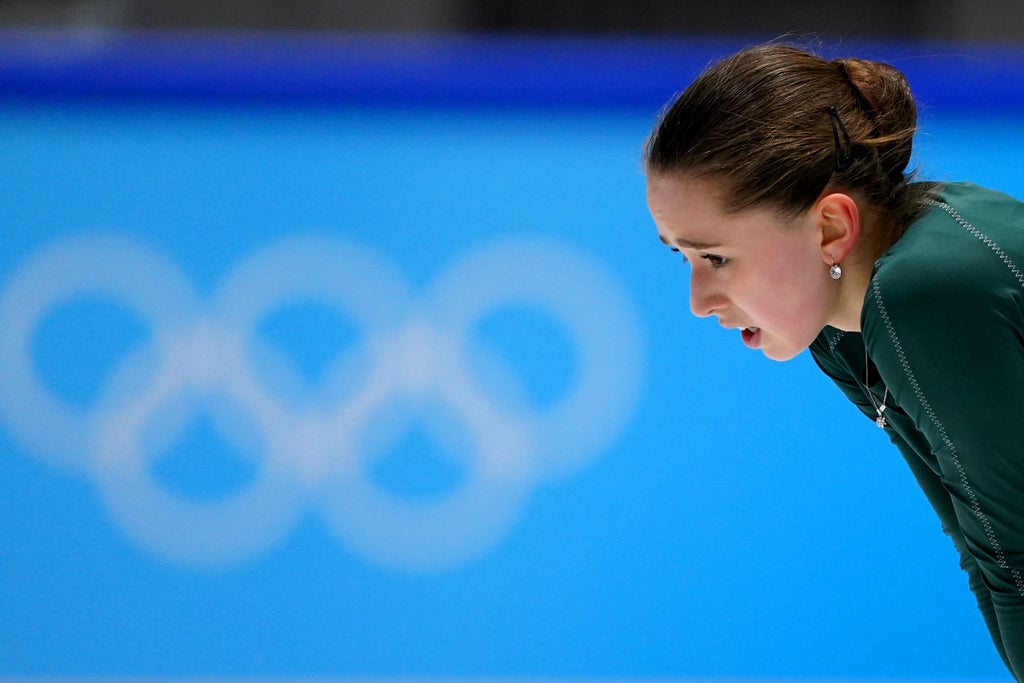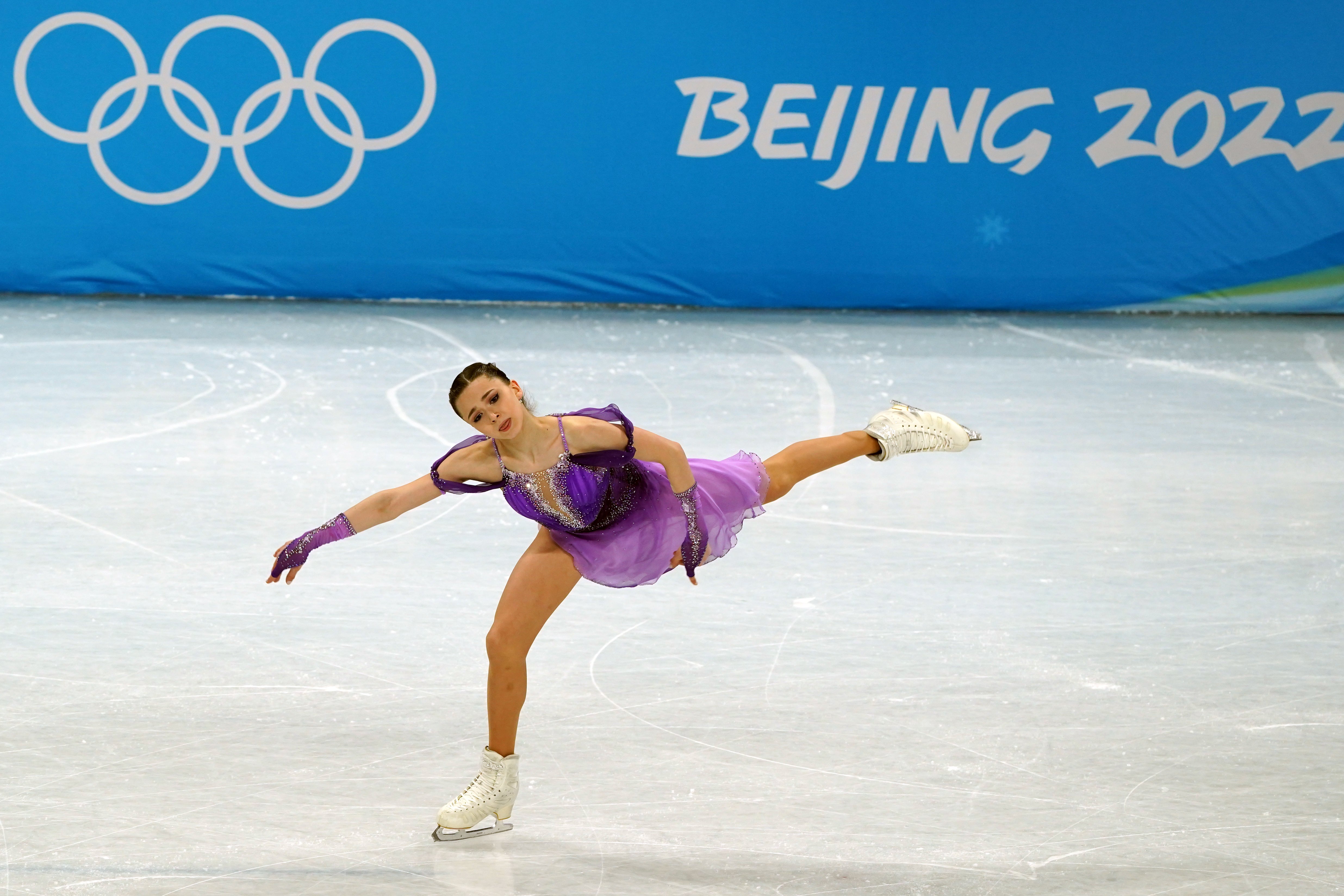
Kamila Valieva has been cleared to continue to compete at the Winter Olympics despite testing positive for the banned heart medication trimetazidine.
An ad-hoc committee set up by the Court of Arbitration for Sport determined that no provisional suspension should be imposed on the 15-year-old Russian figure skater.
Here, the PA news agency takes a look at how one of the biggest controversies in the history of the Games unfolded in Beijing
FEB 6: Valieva makes her Olympic debut in the short program section of the mixed team event. Her routine scores 90.18, just short of her own world record of 90.45.
FEB 7: Valieva becomes the first female figure skater to land quad jumps in an Olympic Games, as her free skate routine seals victory for Russia in the mixed team event.
FEB 8: The medal ceremony for the mixed team is event is delayed due to what the International Skating Union (ISU) describe as a “legal issue” which requires further consultation.
FEB 9: The ‘Inside The Games’ website names Valieva as the figure skater at the centre of a doping probe which is delaying the awarding of medals.

FEB 11: The International Testing Agency (ITA) confirms Valieva tested positive for the banned heart medication trimetazidine on Christmas Day. It says it is appealing the lifting of a provisional suspension by the Russian Anti-Doping Agency (RUSADA).
FEB 12: The World Anti-Doping Agency (WADA) and the ISU confirm they have also filed suits to the Court of Arbitration for Sport, whose ad-hoc committee meets to determine the case. Valieva, who continues to practice in Beijing, makes an appeal by video-link.
FEB 14: The CAS announces that Valieva has been cleared to continue to compete. CAS cited “exceptional circumstances” for the decision, essentially revolving around her status as a ‘protected person’ on the World Anti-Doping Code.







